



 На складі
На складіЗануртесь у Магію Різдва разом з Jole та Face Lab!
З 16.12.2024 по 5.01.2025 ми даруємо неймовірні знижки на вашу улюблену косметику! Підготуйте свою шкіру до святкувань та подаруйте собі незабутній догляд!
-30% на всю продукцію Jole!
-35% на всю продукцію Face Lab!
Це ідеальний час, щоб спробувати нові продукти або поповнити запаси улюблених.
Не пропустіть цю унікальну можливість потішити себе та своїх близьких якісною косметикою за привабливими цінами! Відчуйте силу дієвих інгредієнтів та подаруйте своїй шкірі ніжність та турботу. Святковий настрій гарантований!
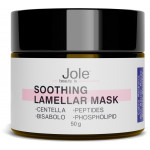



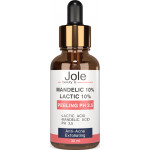

-30 %445 грн. 635 грн.
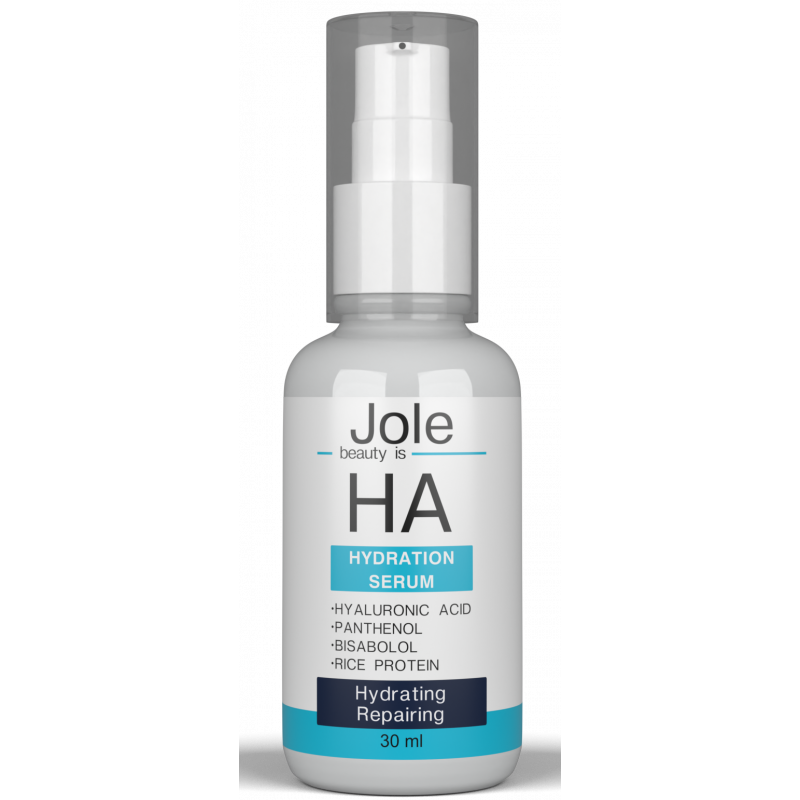 На складі
На складіЗануртесь у Магію Різдва разом з Jole та Face Lab!
З 16.12.2024 по 5.01.2025 ми даруємо неймовірні знижки на вашу улюблену косметику! Підготуйте свою шкіру до святкувань та подаруйте собі незабутній догляд!
-30% на всю продукцію Jole!
-35% на всю продукцію Face Lab!
Це ідеальний час, щоб спробувати нові продукти або поповнити запаси улюблених.
Не пропустіть цю унікальну можливість потішити себе та своїх близьких якісною косметикою за привабливими цінами! Відчуйте силу дієвих інгредієнтів та подаруйте своїй шкірі ніжність та турботу. Святковий настрій гарантований!



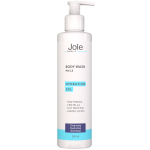

-30 %417 грн. 595 грн.
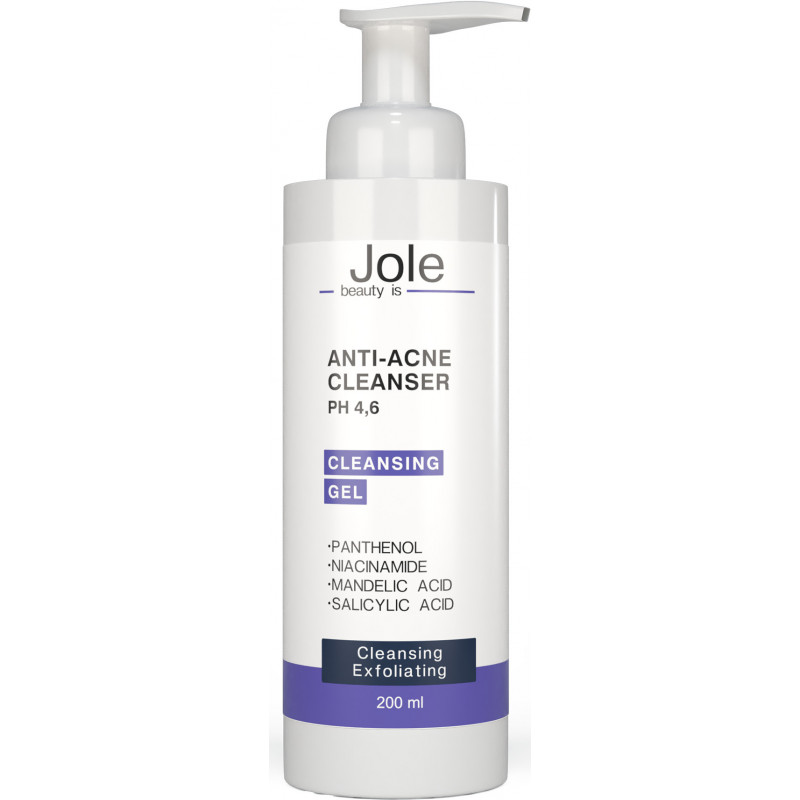 На складі
На складіЗануртесь у Магію Різдва разом з Jole та Face Lab!
З 16.12.2024 по 5.01.2025 ми даруємо неймовірні знижки на вашу улюблену косметику! Підготуйте свою шкіру до святкувань та подаруйте собі незабутній догляд!
-30% на всю продукцію Jole!
-35% на всю продукцію Face Lab!
Це ідеальний час, щоб спробувати нові продукти або поповнити запаси улюблених.
Не пропустіть цю унікальну можливість потішити себе та своїх близьких якісною косметикою за привабливими цінами! Відчуйте силу дієвих інгредієнтів та подаруйте своїй шкірі ніжність та турботу. Святковий настрій гарантований!






-30 %326 грн. 465 грн.
Зануртесь у Магію Різдва разом з Jole та Face Lab!
З 16.12.2024 по 5.01.2025 ми даруємо неймовірні знижки на вашу улюблену косметику! Підготуйте свою шкіру до святкувань та подаруйте собі незабутній догляд!
-30% на всю продукцію Jole!
-35% на всю продукцію Face Lab!
Це ідеальний час, щоб спробувати нові продукти або поповнити запаси улюблених.
Не пропустіть цю унікальну можливість потішити себе та своїх близьких якісною косметикою за привабливими цінами! Відчуйте силу дієвих інгредієнтів та подаруйте своїй шкірі ніжність та турботу. Святковий настрій гарантований!





-30 %319 грн. 455 грн.
 На складі
На складіЗануртесь у Магію Різдва разом з Jole та Face Lab!
З 16.12.2024 по 5.01.2025 ми даруємо неймовірні знижки на вашу улюблену косметику! Підготуйте свою шкіру до святкувань та подаруйте собі незабутній догляд!
-30% на всю продукцію Jole!
-35% на всю продукцію Face Lab!
Це ідеальний час, щоб спробувати нові продукти або поповнити запаси улюблених.
Не пропустіть цю унікальну можливість потішити себе та своїх близьких якісною косметикою за привабливими цінами! Відчуйте силу дієвих інгредієнтів та подаруйте своїй шкірі ніжність та турботу. Святковий настрій гарантований!






-30 %298 грн. 425 грн.
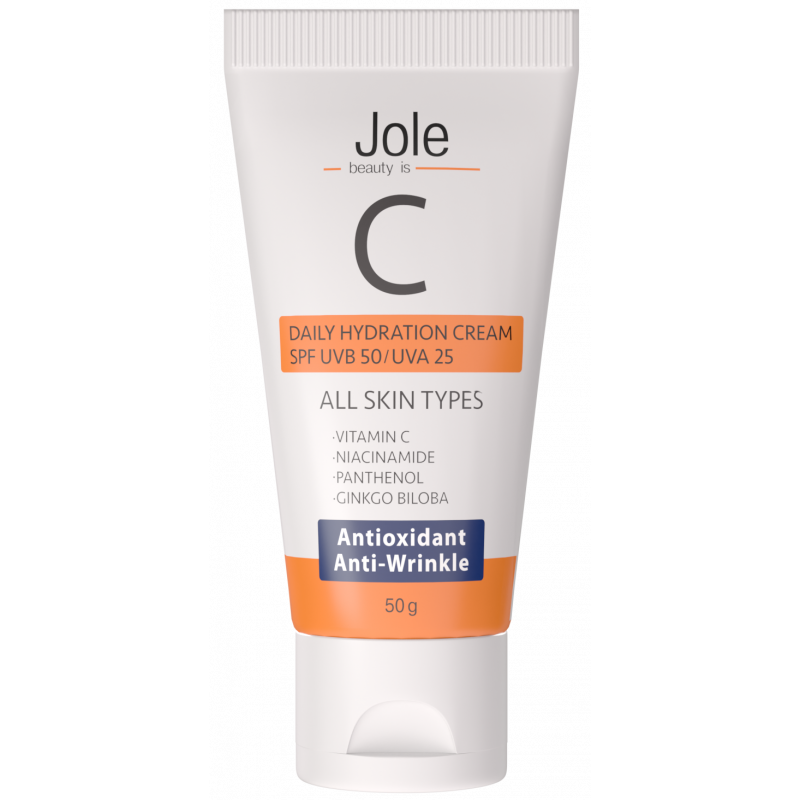 На складі
На складіЗануртесь у Магію Різдва разом з Jole та Face Lab!
З 16.12.2024 по 5.01.2025 ми даруємо неймовірні знижки на вашу улюблену косметику! Підготуйте свою шкіру до святкувань та подаруйте собі незабутній догляд!
-30% на всю продукцію Jole!
-35% на всю продукцію Face Lab!
Це ідеальний час, щоб спробувати нові продукти або поповнити запаси улюблених.
Не пропустіть цю унікальну можливість потішити себе та своїх близьких якісною косметикою за привабливими цінами! Відчуйте силу дієвих інгредієнтів та подаруйте своїй шкірі ніжність та турботу. Святковий настрій гарантований!






-30 %459 грн. 655 грн.
Встигни купитиДо кінця акції залишилося
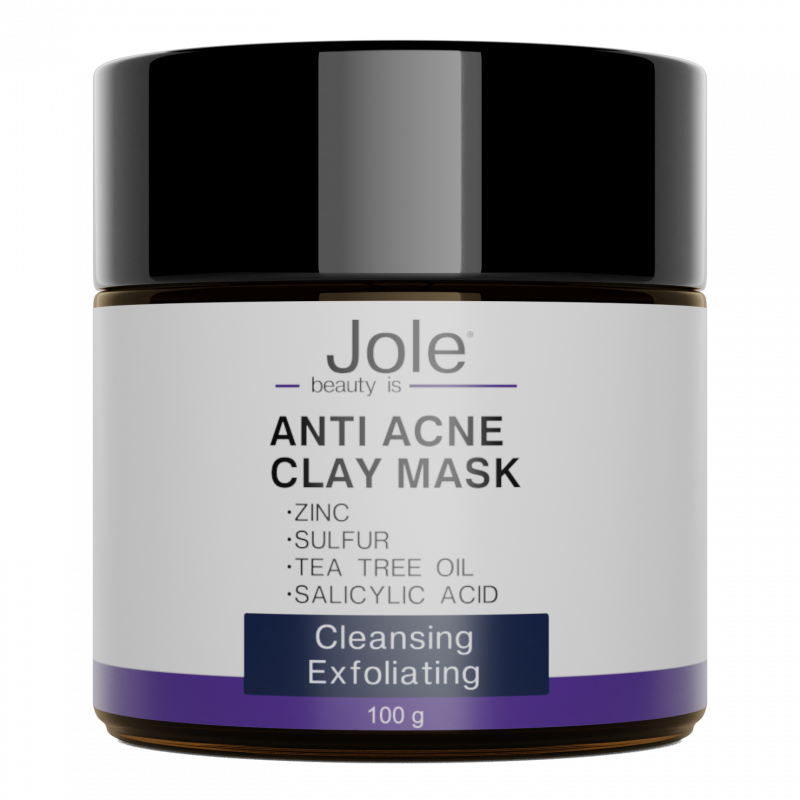 На складі
На складіЗануртесь у Магію Різдва разом з Jole та Face Lab!
З 16.12.2024 по 5.01.2025 ми даруємо неймовірні знижки на вашу улюблену косметику! Підготуйте свою шкіру до святкувань та подаруйте собі незабутній догляд!
-30% на всю продукцію Jole!
-35% на всю продукцію Face Lab!
Це ідеальний час, щоб спробувати нові продукти або поповнити запаси улюблених.
Не пропустіть цю унікальну можливість потішити себе та своїх близьких якісною косметикою за привабливими цінами! Відчуйте силу дієвих інгредієнтів та подаруйте своїй шкірі ніжність та турботу. Святковий настрій гарантований!






-30 %417 грн. 595 грн.
 На складі
На складіЗануртесь у Магію Різдва разом з Jole та Face Lab!
З 16.12.2024 по 5.01.2025 ми даруємо неймовірні знижки на вашу улюблену косметику! Підготуйте свою шкіру до святкувань та подаруйте собі незабутній догляд!
-30% на всю продукцію Jole!
-35% на всю продукцію Face Lab!
Це ідеальний час, щоб спробувати нові продукти або поповнити запаси улюблених.
Не пропустіть цю унікальну можливість потішити себе та своїх близьких якісною косметикою за привабливими цінами! Відчуйте силу дієвих інгредієнтів та подаруйте своїй шкірі ніжність та турботу. Святковий настрій гарантований!





-30 %245 грн. 350 грн.
Встигни купитиДо кінця акції залишилося
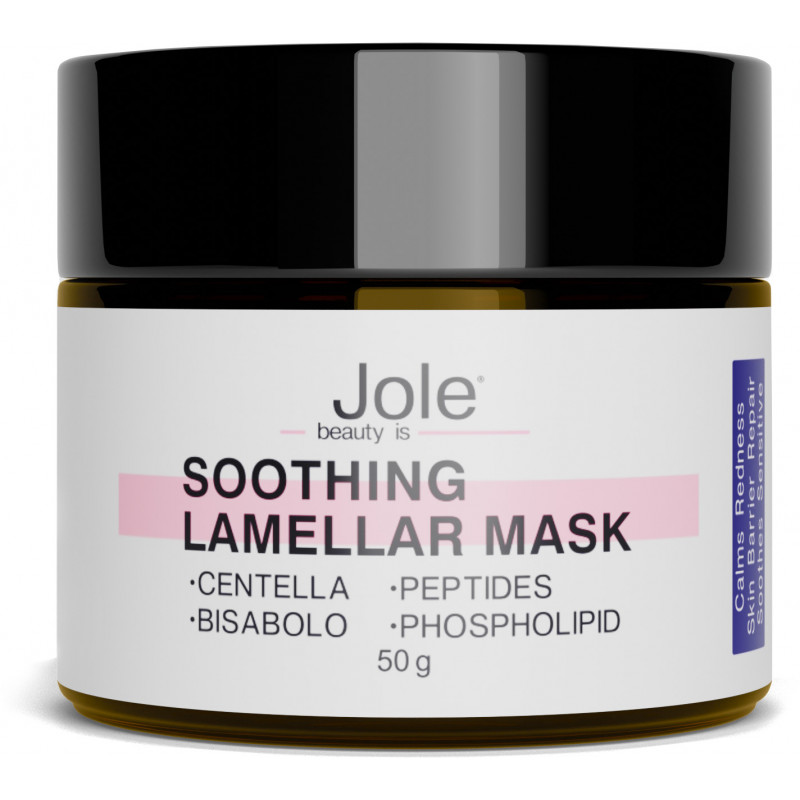 На складі
На складіЗануртесь у Магію Різдва разом з Jole та Face Lab!
З 16.12.2024 по 5.01.2025 ми даруємо неймовірні знижки на вашу улюблену косметику! Підготуйте свою шкіру до святкувань та подаруйте собі незабутній догляд!
-30% на всю продукцію Jole!
-35% на всю продукцію Face Lab!
Це ідеальний час, щоб спробувати нові продукти або поповнити запаси улюблених.
Не пропустіть цю унікальну можливість потішити себе та своїх близьких якісною косметикою за привабливими цінами! Відчуйте силу дієвих інгредієнтів та подаруйте своїй шкірі ніжність та турботу. Святковий настрій гарантований!






-30 %515 грн. 735 грн.
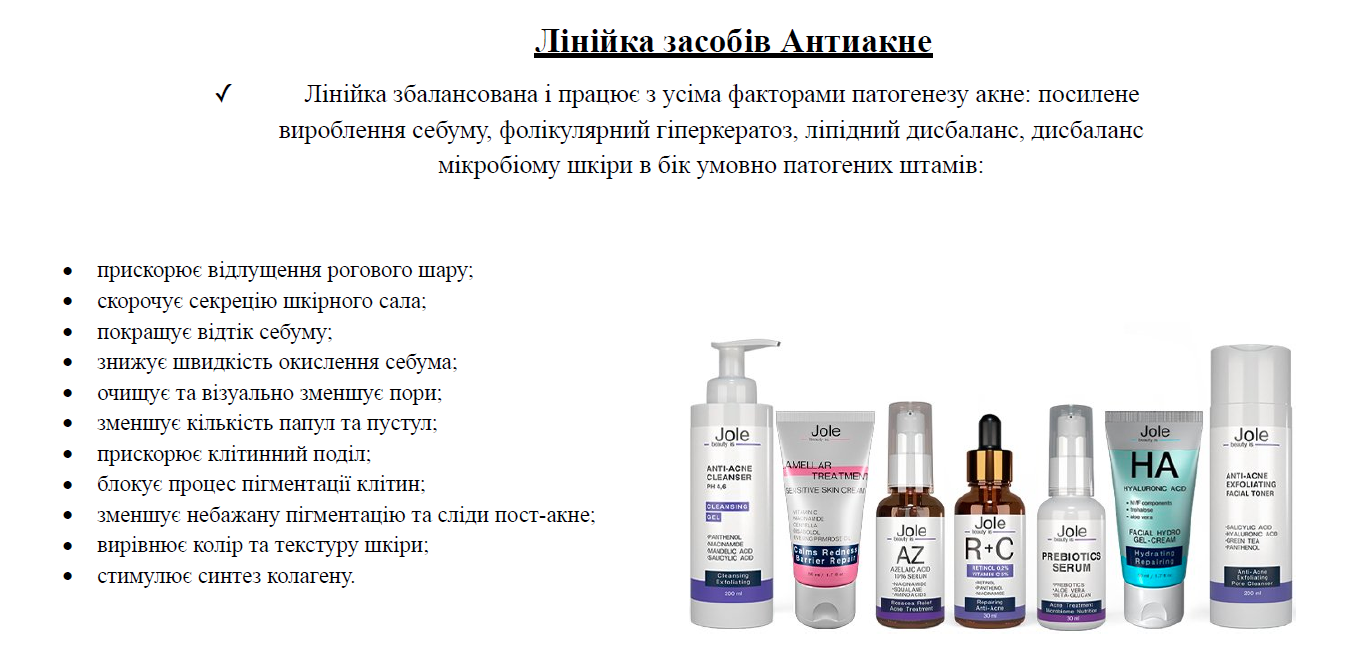

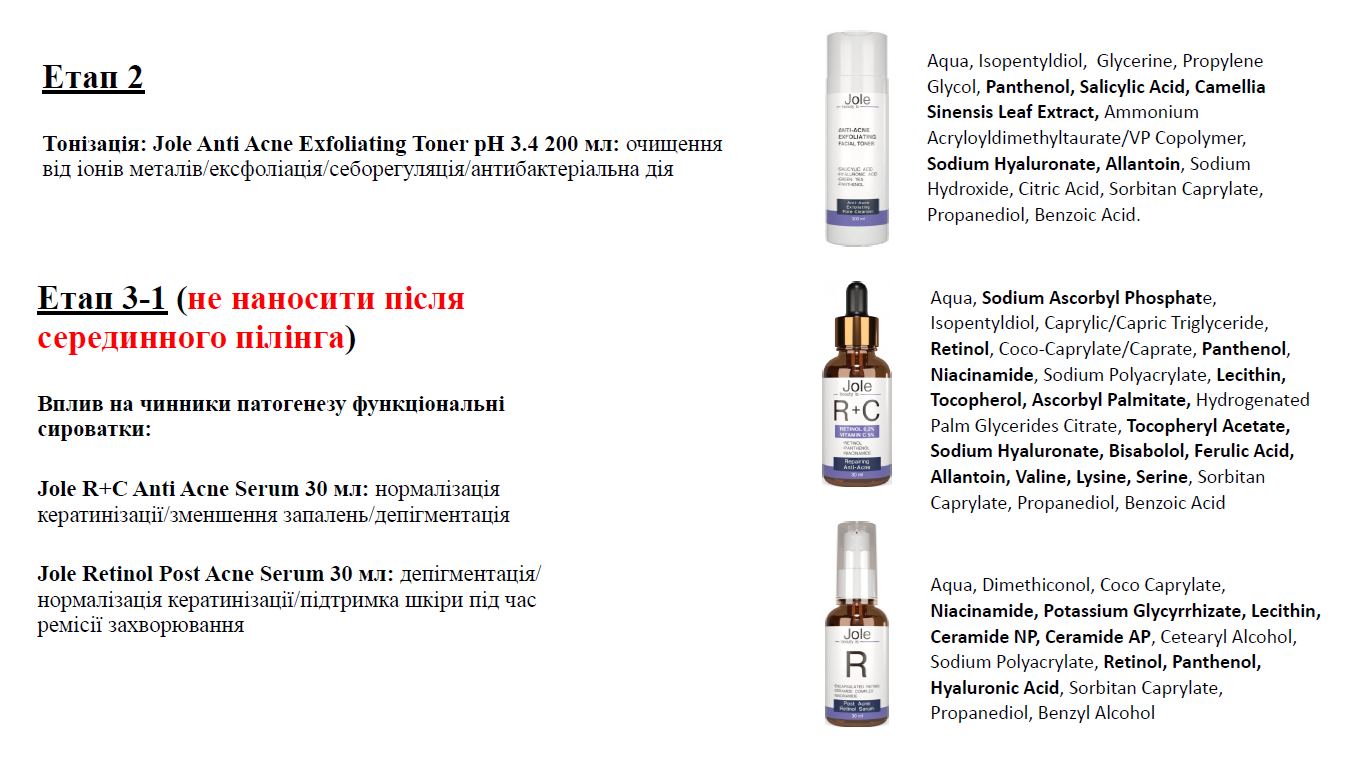
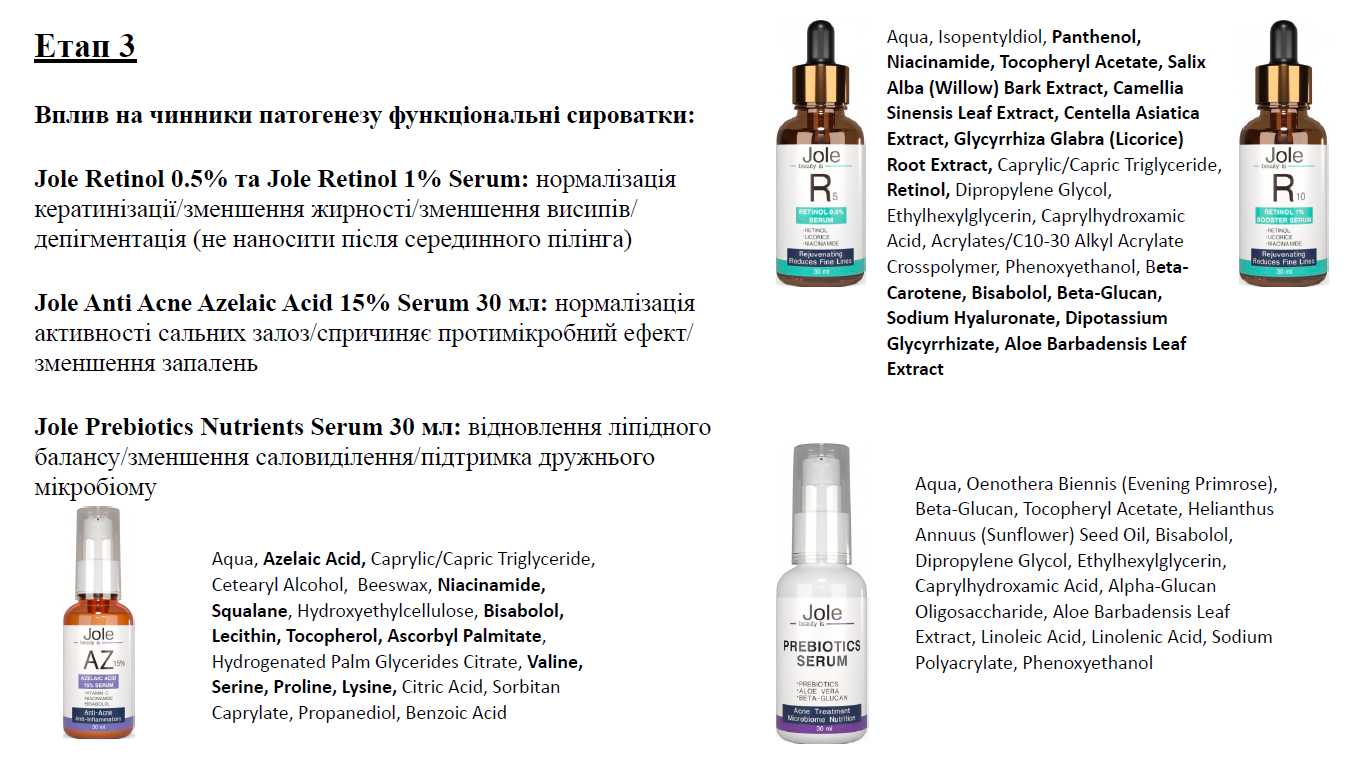
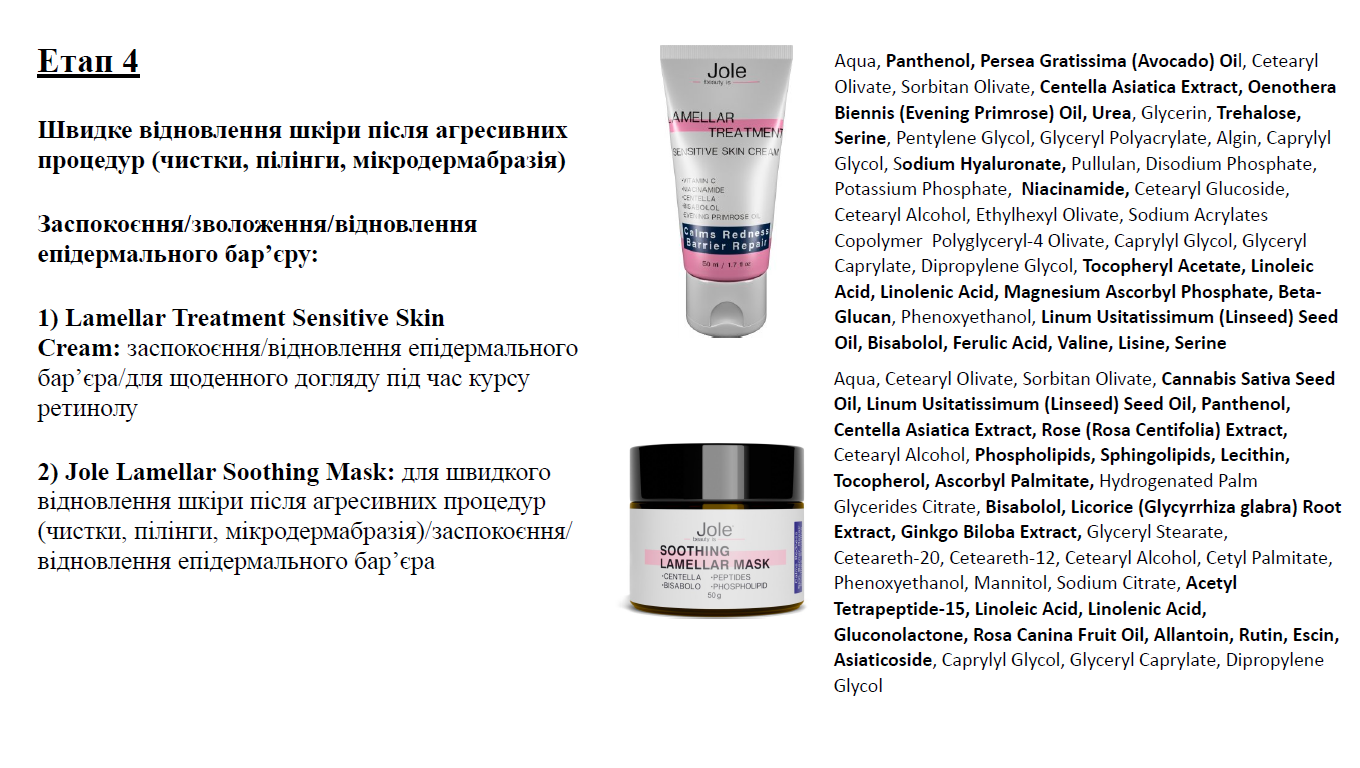
1. Які професійні засоби підходять для лікування акне?
Професійні засоби для лікування акне часто містять активні інгредієнти, такі як бензоїлпероксид, саліцилова кислота, ретиноїди і азелаїнова кислота. Вони допомагають зменшити запалення, очищують пори та запобігають утворенню нових вугрів. Використання комплексного підходу, який включає очищувальні засоби, тоніки, сироватки та креми, може бути дуже ефективним.
Засоби з бензоїлпероксидом допомагають знищувати бактерії, що спричиняють акне, а ретиноїди сприяють оновленню шкіри та зменшують шкірне запалення.
2. Як правильно доглядати за шкірою з акне?
Догляд за шкірою з акне потребує регулярного очищення та використання спеціальних засобів, які зменшують запалення і запобігають утворенню нових вугрів. Починайте з ніжного очищення обличчя двічі на день, використовуючи антиакне засоби.
Далі наносьте тонік, щоб збалансувати рівень pH шкіри. Використовуйте сироватки і креми від акне, які містять активні компоненти, такі як саліцилова кислота або ніацинамід.
Не забувайте про зволоження шкіри, навіть якщо вона жирна, і обирайте легкі, некомедогенні зволожуючі креми.
3. Які засоби найкраще підходять для лікування важких форм акне?
Для лікування важких форм акне часто необхідні професійні засоби, які містять більш високі концентрації активних інгредієнтів. Наприклад, ретиноїди можуть бути призначені для зменшення запалення і очищення пор. Також можуть використовуватися антибіотики, як топічні, так і системні, для знищення бактерій, що викликають акне.
Азелаїнова кислота є ще одним ефективним інгредієнтом для лікування важких форм акне, оскільки вона має антибактеріальні і протизапальні властивості.
Консультація з дерматологом допоможе підібрати найбільш ефективний план лікування.
4. Чи можна використовувати домашні засоби для лікування акне?
Хоча деякі домашні засоби можуть допомогти зменшити симптоми акне, професійні засоби зазвичай є більш ефективними. Наприклад, мед має антибактеріальні властивості і може бути корисним у вигляді маски. Однак, такі методи не замінюють спеціалізовані засоби від акне, які містять активні інгредієнти, що борються з основними причинами акне.
Важливо також пам'ятати, що неправильне лікування домашніми засобами може призвести до подразнення і погіршення стану шкіри.
5. Як часто слід використовувати засоби від акне?
Частота використання засобів від акне залежить від конкретного продукту та індивідуальних потреб шкіри. Наприклад, очищувальні засоби і тоніки зазвичай використовуються двічі на день - вранці і ввечері. Сироватки і креми з активними інгредієнтами, такими як саліцилова кислота або ретиноїди, часто застосовуються один раз на день, зазвичай ввечері.
Важливо дотримуватися інструкцій виробника та порад дерматолога, щоб уникнути пересушування або подразнення шкіри. У випадку почервоніння або дискомфорту, частоту використання засобів можна зменшити.